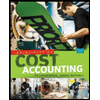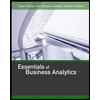In each of the cases below, assume that Division X has a product that can be sold either to outside customers or to Division Y of the same company for use in its production process. The managers of the divisions are evaluated based on their divisional profits: Division X: Capacity in units Number of units being sold to outside customers Selling price per unit to outside customers Variable costs per unit Fixed costs per unit (based on capacity) Division Y: Number of units needed for production. Purchase price per unit now being paid to an outside supplier Transfer price A 100,000 100,000 O Yes O No $50 $30 $8 20,000 $47 1-b. If the managers are free to negotiate and make decisions on their own, will a transfer take place? Case B 100,000 80,000 $35 Required: 1-a. Refer to the data in case A above. Assume that $2 per unit in variable selling costs can be avoided on intracompany sales. Determine the transfer price of the selling division. $20 $6 20,000 $34 2-a. Refer to the data in case B above. In this case there will be no reduction in variable selling costs on intracompany sales. Determine the transfer price of the selling division.
In each of the cases below, assume that Division X has a product that can be sold either to outside customers or to Division Y of the same company for use in its production process. The managers of the divisions are evaluated based on their divisional profits: Division X: Capacity in units Number of units being sold to outside customers Selling price per unit to outside customers Variable costs per unit Fixed costs per unit (based on capacity) Division Y: Number of units needed for production. Purchase price per unit now being paid to an outside supplier Transfer price A 100,000 100,000 O Yes O No $50 $30 $8 20,000 $47 1-b. If the managers are free to negotiate and make decisions on their own, will a transfer take place? Case B 100,000 80,000 $35 Required: 1-a. Refer to the data in case A above. Assume that $2 per unit in variable selling costs can be avoided on intracompany sales. Determine the transfer price of the selling division. $20 $6 20,000 $34 2-a. Refer to the data in case B above. In this case there will be no reduction in variable selling costs on intracompany sales. Determine the transfer price of the selling division.
Financial And Managerial Accounting
15th Edition
ISBN:9781337902663
Author:WARREN, Carl S.
Publisher:WARREN, Carl S.
Chapter24: Evaluating Decentralized Operations
Section: Chapter Questions
Problem 8E: Rocky Mountain Airlines Inc. has two divisions organized as profit centers, the Passenger Division...
Related questions
Question

Transcribed Image Text:2-b. If the managers are free to negotiate and make decisions on their own, will a transfer take place?
Yes
No
2-c. What is the range of transfer price the managers of both divisions should agree?
The transfer price can be a lowest of
$
20 and a highest of
$
34

Transcribed Image Text:In each of the cases below, assume that Division X has a product that can be sold either to outside customers or to Division Y of the
same company for use in its production process. The managers of the divisions are evaluated based on their divisional profits:
Division X:
Capacity in units
Number of units being sold to outside customers
Selling price per unit to outside customers
Variable costs per unit
Fixed costs per unit (based on capacity)
Division Y:
Number of units needed for production
Purchase price per unit now being paid to an outside supplier
Transfer price
A
Yes
No
100,000
100,000
1-b. If the managers are free to negotiate and make decisions on their own, will a transfer take place?
Transfer price
$50
$30
$8
20,000
$47
Case
B
Required:
1-a. Refer to the data in case A above. Assume that $2 per unit in variable selling costs can be avoided on intracompany sales.
Determine the transfer price of the selling division.
100,000
80,000
$35
$20
$6
20,000
$34
2-a. Refer to the data in case B above. In this case there will be no reduction in variable selling costs on intracompany sales.
Determine the transfer price of the selling division.
Expert Solution
This question has been solved!
Explore an expertly crafted, step-by-step solution for a thorough understanding of key concepts.
This is a popular solution!
Trending now
This is a popular solution!
Step by step
Solved in 4 steps with 2 images

Knowledge Booster
Learn more about
Need a deep-dive on the concept behind this application? Look no further. Learn more about this topic, accounting and related others by exploring similar questions and additional content below.Recommended textbooks for you

Financial And Managerial Accounting
Accounting
ISBN:
9781337902663
Author:
WARREN, Carl S.
Publisher:
Cengage Learning,

Managerial Accounting
Accounting
ISBN:
9781337912020
Author:
Carl Warren, Ph.d. Cma William B. Tayler
Publisher:
South-Western College Pub

Principles of Accounting Volume 2
Accounting
ISBN:
9781947172609
Author:
OpenStax
Publisher:
OpenStax College

Financial And Managerial Accounting
Accounting
ISBN:
9781337902663
Author:
WARREN, Carl S.
Publisher:
Cengage Learning,

Managerial Accounting
Accounting
ISBN:
9781337912020
Author:
Carl Warren, Ph.d. Cma William B. Tayler
Publisher:
South-Western College Pub

Principles of Accounting Volume 2
Accounting
ISBN:
9781947172609
Author:
OpenStax
Publisher:
OpenStax College

Principles of Cost Accounting
Accounting
ISBN:
9781305087408
Author:
Edward J. Vanderbeck, Maria R. Mitchell
Publisher:
Cengage Learning

Excel Applications for Accounting Principles
Accounting
ISBN:
9781111581565
Author:
Gaylord N. Smith
Publisher:
Cengage Learning

Essentials of Business Analytics (MindTap Course …
Statistics
ISBN:
9781305627734
Author:
Jeffrey D. Camm, James J. Cochran, Michael J. Fry, Jeffrey W. Ohlmann, David R. Anderson
Publisher:
Cengage Learning